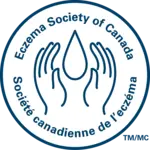Learn more about oral JAK inhibitors: dermatologist Aaron M. Drucker
Oral JAK inhibitors are a new class of medication indicated for the treatment of adults and adolescents 12 years of age and older with moderate to severe atopic dermatitis (AD) who are not adequately controlled with a systemic treatment or when use of those therapies is inadvisable. Oral JAK inhibitors are another advancement in a series of breakthroughs for the management of uncontrolled moderate to severe disease. Eczema Society of Canada (ESC) asked dermatologist and researcher Aaron M. Drucker MD, FRCPC, about oral JAK inhibitors and how they are used in the treatment of AD. ESC recommends that individuals should discuss the risks and benefits of these therapies with their prescribing physician or a qualified health care professional.
What are oral JAK Inhibitors and how do they work?
Oral janus kinase (JAK) inhibitors are a new type of medication that treat AD by acting on multiple inflammatory pathways at the same time. It is these overactive inflammatory pathways that cause the inflammation of AD.
For many patients with AD, their condition can be managed with prescription topical treatments. However, for some patients who live with uncontrolled moderate or severe AD, topical therapies may not be enough to control their disease and their dermatologist may consider a systemic medication, such as an oral JAK inhibitor.
Oral JAK inhibitors are used to calm overactive JAK pathways which results in AD flares. Clinical studies show that oral JAK inhibitors are effective at improving symptoms such as itch, redness, and dryness for AD patients.
How are oral JAK inhibitors taken?
Oral JAK inhibitors are taken as a pill by mouth. However, this class of medication is also being studied as a topical medication.
Are oral JAK inhibitors safe?
Oral JAK inhibitors have been used for many years for other inflammatory diseases, such as rheumatoid arthritis. Some JAK inhibitors have been found to increase the risk of uncommon but serious events such as blood clots, cardiac events, cancers and certain infections, and patients should speak to a qualified health care professional about the risks and benefits of treatments.
Eczema Society of Canada thanks Aaron M. Drucker MD, FRCPC for his volunteer contribution to this educational content.
Disclaimer: Information provided in this resource does not constitute medical advice and is not intended to be used as a diagnostic tool. The information is up-to-date at time of publication. All medications, interventions, and treatment plans have risks and benefits, and it is important that individuals discuss their or their child’s specific health care needs with a qualified health care professional.
February 2022

